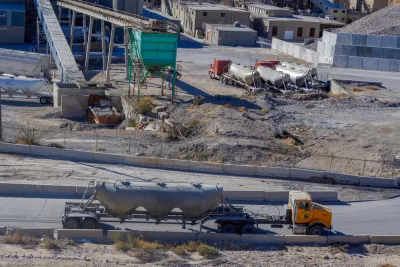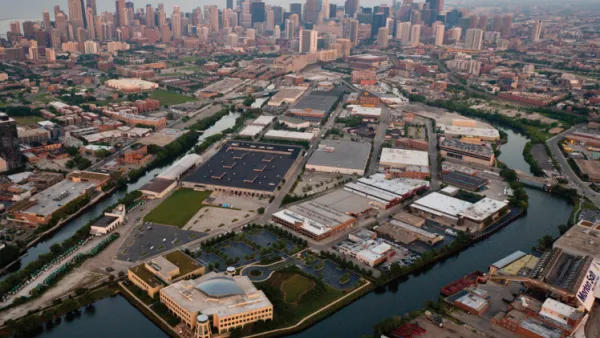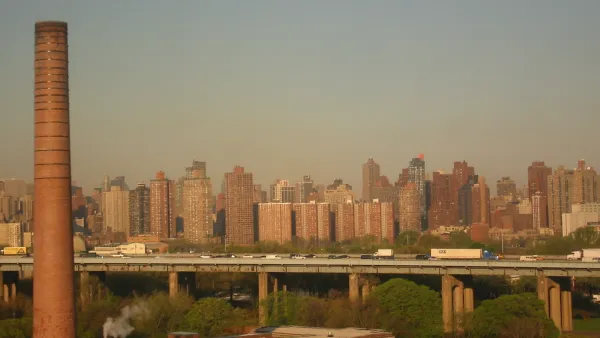Zoning in the U.S. was originally intended to keep noxious uses out of residential areas. Around Houston, which famously lacks a traditional zoning system, polluting uses are still granted broad permission to operate in residential areas.

Allyn West reports on the environmental problems created by concrete batch plants, and the residential neighborhoods dealing with the consequences.
The scene for this environmental justice drama is Harris County, Texas, where the Texas Commission on Environmental Quality (TCEQ) has granted 188 concrete plants the permits to operate, mostly in unincorporated parts of the county like Aldine, where eight concrete plants are currently operating. In Aldine, at least, local residents have scored a pair of recent victories to keep new concrete plants out.
"Though they produce one of the ubiquitous materials of cities, the concrete we pour for everything from sidewalks to stormwater pipes to skyscrapers, the unique combination of Houston’s lack of zoning, the region’s relentless outward growth and an overly permissive state environmental agency means that too many concrete batch plants are making it too hard to breathe," according to West.
This environmental justice issue has roots in the racist land use controls of the past, according to West. "Because land has been cheapened by redlining, disinvestment, restrictive covenants and environmental racism, polluters concentrate unevenly across the region, often intentionally in communities of color and low wealth, compounding other issues and creating entrenched disparities, almost all of which are being exacerbated by the coronavirus pandemic. Those who are exposed the most to pollution are the least responsible for it."
From the experiences of the community in Aldine, however, a model for resistance to the permissiveness of the TCEQ has emerged.
FULL STORY: ou don't want to live near a concrete batch plant. But TCEQ lets it happen too easily.

National Parks Layoffs Will Cause Communities to Lose Billions
Thousands of essential park workers were laid off this week, just before the busy spring break season.

Retro-silient?: America’s First “Eco-burb,” The Woodlands Turns 50
A master-planned community north of Houston offers lessons on green infrastructure and resilient design, but falls short of its founder’s lofty affordability and walkability goals.

Delivering for America Plan Will Downgrade Mail Service in at Least 49.5 Percent of Zip Codes
Republican and Democrat lawmakers criticize the plan for its disproportionate negative impact on rural communities.

Test News Post 1
This is a summary

Test News Headline 46
Test for the image on the front page.

Balancing Bombs and Butterflies: How the National Guard Protects a Rare Species
The National Guard at Fort Indiantown Gap uses GIS technology and land management strategies to balance military training with conservation efforts, ensuring the survival of the rare eastern regal fritillary butterfly.
Urban Design for Planners 1: Software Tools
This six-course series explores essential urban design concepts using open source software and equips planners with the tools they need to participate fully in the urban design process.
Planning for Universal Design
Learn the tools for implementing Universal Design in planning regulations.
EMC Planning Group, Inc.
Planetizen
Planetizen
Mpact (formerly Rail~Volution)
Great Falls Development Authority, Inc.
HUDs Office of Policy Development and Research
NYU Wagner Graduate School of Public Service





























